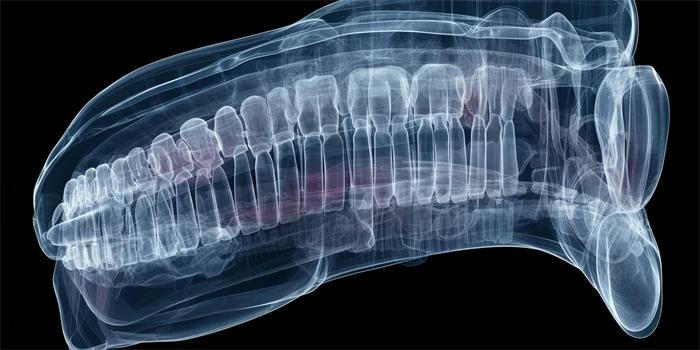Dental implants are a popular solution for individuals who have lost their natural teeth but want to restore their smile and oral functionality. While dental implants are durable and long-lasting, occasional repairs may be necessary over time. Understanding the process of dental implant repair can help patients be informed and prepared. In this article, we will explore ten important points about dental implant repair, providing clear and easy-to-understand information.

1. Why Dental Implant Repair is Needed
Over time, dental implants can experience wear and tear, leading to various issues that require repair. These include damaged or loose crowns, fractured implants, implant screw loosening, infection around the implant, or tissue inflammation. Recognizing the signs that prompt dental implant repair can ensure timely intervention and prevent further complications.
Detecting signs that require dental implant repair:
- Loose or shifting implants
- Persistent pain or discomfort
- Gum inflammation or swelling
- Difficulty chewing or biting
2. Consulting a Dental Professional
If you suspect any issues with your dental implants, it is crucial to consult a dental professional specializing in dental implant repair. Avoid attempting to fix the problem yourself, as improper handling can lead to further damage. Your dentist will conduct a thorough examination and recommend an appropriate course of action.
3. Evaluation and Diagnosis
During your dental appointment, the dentist will carefully evaluate your dental implants, including the bone, gum tissue, and supporting structures. They may request X-rays or additional scans to assess the condition of the implant. Based on the diagnosis, the dentist will determine the most suitable repair method to address the specific issue.
4. Repair Options
The repair process depends on the nature and severity of the dental implant problem. Some common repair options include:
- Tightening or replacing loose or damaged crowns
- Repairing or replacing fractured implants
- Re-tightening implant screws
- Treating infections or inflammation
It's important to note that some severe cases of implant damage may require implant removal and replacement. Your dentist will guide you through the available repair options and recommend the most suitable approach.
5. The Treatment Plan
Once the repair method is chosen, your dentist will devise a comprehensive treatment plan. This plan will outline the necessary steps, estimated timeframe, and any potential associated costs. It is important to discuss and clarify any concerns or questions you may have regarding the treatment plan with your dentist.
6. Preparations for Dental Implant Repair
Prior to the repair procedure, your dentist will provide you with detailed instructions on necessary preparations. These might include fasting before surgery, avoiding certain medications, or arranging transportation to and from the dental clinic. Following these instructions diligently will ensure a smooth and successful repair process.
7. Dental Implant Repair Procedure
The exact procedure for dental implant repair will depend on the specific repair needed. Your dentist will explain the process to you in detail beforehand. In general, the steps involved in dental implant repair may include:
- Administering local anesthesia to ensure comfort
- Removing or repairing the damaged component
- Addressing any underlying issues, such as infection
- Securing or replacing the implant crown, if necessary
The duration of the procedure will vary based on the complexity of the repair. Your dental professional will provide an estimate of the time needed.
8. Recovery and Aftercare
After the dental implant repair, it is crucial to follow your dentist’s instructions for proper recovery and aftercare. This may include:
- Taking prescribed medications, such as antibiotics or pain relievers
- Following a soft-food diet for a specified period
- Practicing good oral hygiene by gently brushing and flossing
- Scheduling and attending follow-up appointments
By adhering to the recommended guidelines, you can aid the healing process and minimize the risk of complications.
9. Long-Term Maintenance
While dental implant repairs can restore the functionality of your implants, it is essential to prioritize long-term maintenance. Regular dental check-ups and cleanings, as well as practicing good oral hygiene at home, can contribute to the longevity of your dental implants. Additionally, communicate any concerns or changes you notice to your dentist promptly.
10. Insurance Coverage and Costs
The cost of dental implant repair can vary depending on the specific repair needed and the region you live in. It is important to discuss the estimated costs and possible insurance coverage with your dental professional beforehand. Many dental insurance plans offer coverage for dental implant repair, but the extent of coverage may vary. Understanding the financial aspect will help you plan accordingly.
Frequently Asked Questions (FAQs)
1. How long does dental implant repair take?
The duration of dental implant repair depends on the complexity of the repair needed. It can range from a simple tightening procedure lasting minutes to a more involved repair that may require multiple appointments.
2. Will I experience pain during dental implant repair?
Your dentist will ensure your comfort during the repair procedure by administering local anesthesia. This will numb the area being treated, minimizing any potential pain or discomfort.
3. Can dental implant repair be done in a single visit?
In some cases, a minor repair can be completed in a single visit. However, more extensive repairs might require multiple visits to ensure the best possible outcome.
4. How long do dental implants last after repair?
Dental implants, when properly cared for and maintained, can last a lifetime. After repair, the longevity of your dental implants will depend greatly on your oral hygiene practices and regular dental care.
5. Are dental implant repairs covered by insurance?
Many dental insurance plans provide coverage for dental implant repairs. However, the extent of coverage may vary, and it is recommended to consult with your dental insurance provider to understand your policy's specifics.
Always consult with a qualified dental professional for advice, diagnosis, and treatment related to dental implant repair.
References:
- Dental Implant Repair: How to Handle Cementation, Implant Screw Loosening, and More. (publication reference)
- Options for Repair of Fractured Dental Implants: A Systematic Review. (publication reference)



